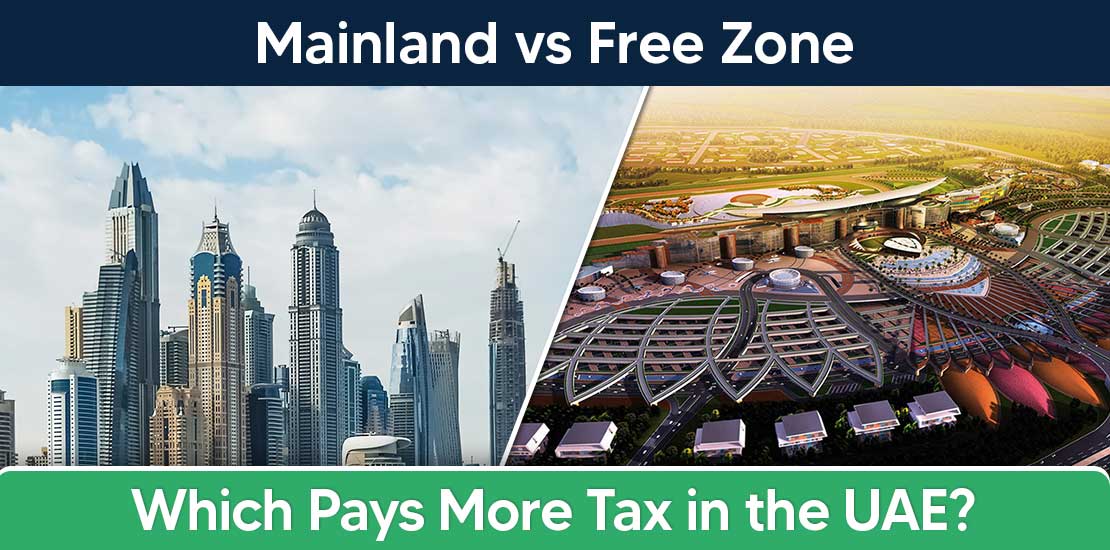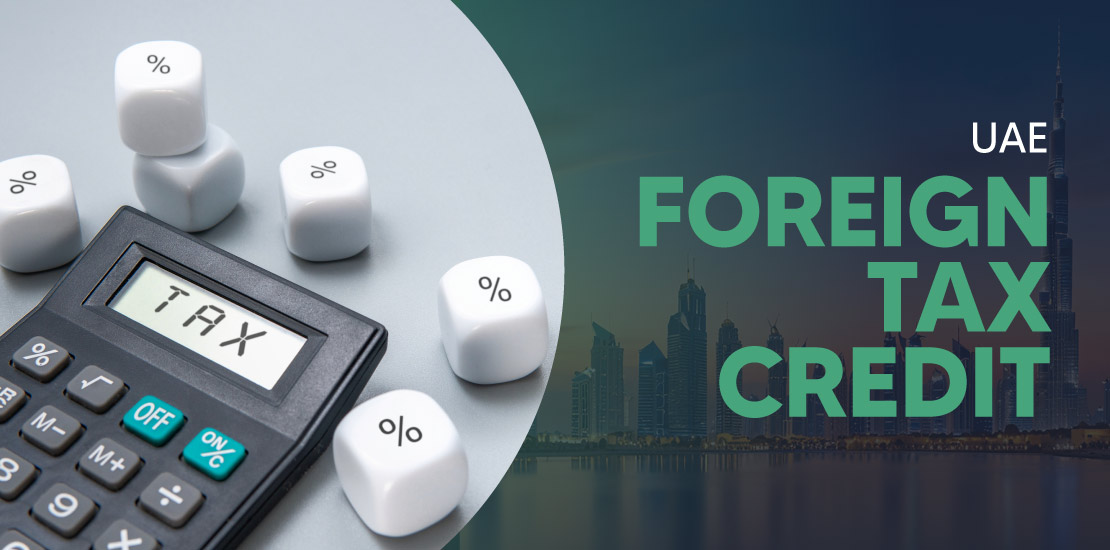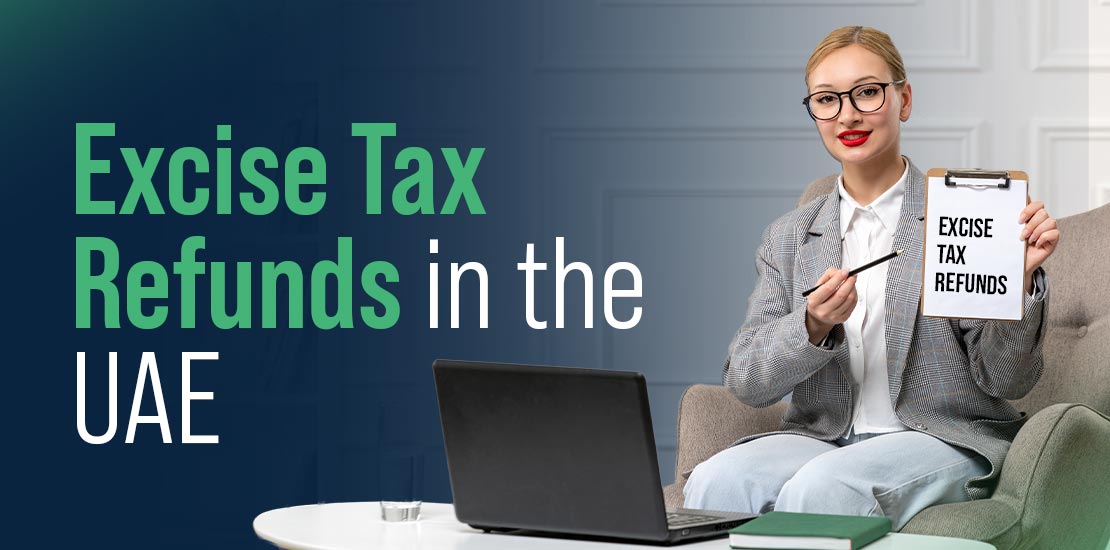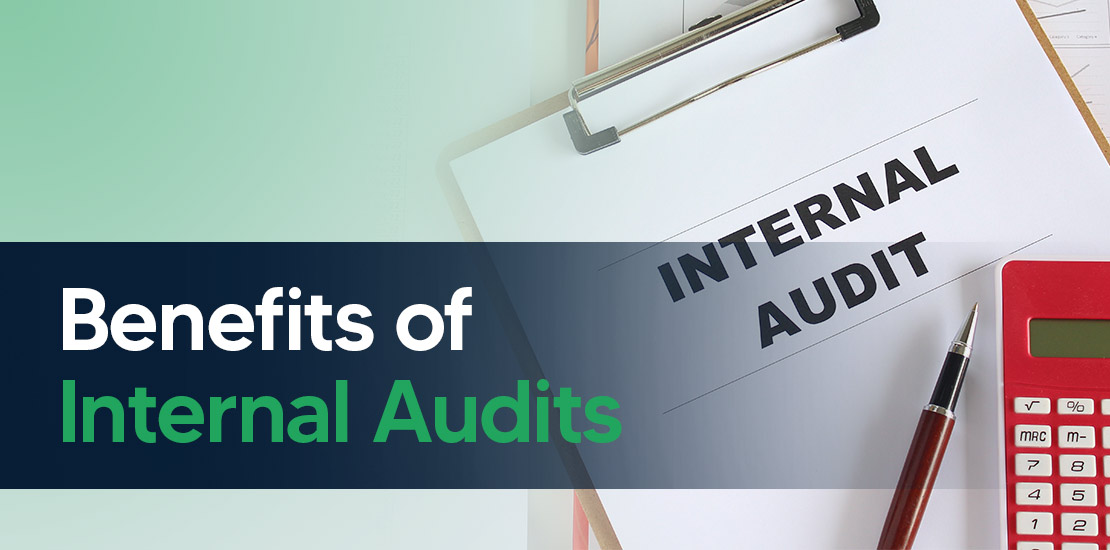Table of Contents
- What is Corporate Tax in the UAE?
- Who Needs to Pay Corporate Tax?
- Current Corporate Tax Rate in the UAE:
- Key Exemptions and Relief
- Corporate Tax for Mainland Companies in the UAE
- Corporate Tax for Free Zone Companies in the UAE
- Key Differences: Mainland vs Free Zone Corporate Tax
- Common Misconceptions About Corporate Tax in the UAE
- We’ll Help You Make Corporate Tax Simple
- Frequently Asked Question
The UAE introduced corporate tax in 2023, a big change for businesses across the country. The goal was to align with global standards and support the nation’s growing economy. But with this new system came one common question: How does corporate tax apply to mainland and free zone companies?
While both fall under the same tax law, the rules aren’t exactly the same. Mainland companies are generally taxed at 9%, whereas free zone businesses can still enjoy a 0% rate on qualifying income, as long as they meet the set conditions.
Knowing these differences is important, as it helps you stay compliant but also lets you plan your taxes smartly, which can save you both money and stress.
What is Corporate Tax in the UAE?
Corporate tax is a direct tax on the profits of businesses. Simply put, it’s the amount companies pay to the government based on what they earn. The UAE introduced this tax to align with international tax practices, boost transparency, and support the country’s long-term economic growth. It also helps attract responsible global investors by building a stable financial environment.
Who Needs to Pay Corporate Tax?
Corporate tax generally applies to:
- All mainland and free zone companies (depending on their qualifying status)
- Foreign businesses earning income from the UAE
- Individuals engaged in business activities that require a commercial license
Current Corporate Tax Rate in the UAE:
The standard corporate tax rate in the UAE is 9% on profits above AED 375,000.
Any income below AED 375,000 is taxed at 0%, which means small and growing businesses can operate with minimal tax burden. This threshold was introduced to encourage entrepreneurship and support SMEs.
Key Exemptions and Relief
Not all entities are required to pay corporate tax. The following are exempt under UAE law:
- Government and public entities
- Extractive and natural resource businesses
- Certain qualifying investment funds
- Businesses wholly owned by the UAE government
Corporate Tax for Mainland Companies in the UAE
Mainland companies in the UAE are fully subject to corporate tax under the Federal Decree-Law No. 47 of 2022. This means that all profits earned from business activities (both within the UAE and abroad) are taxable, unless specifically exempt. The aim is to create a fair, transparent tax environment that supports the country’s sustainable economic development.
1. Tax rates and thresholds:
Mainland businesses are taxed at:
- 0% on taxable income up to AED 375,000
- 9% on taxable income above AED 375,000
This tiered structure ensures small and medium-sized businesses aren’t overburdened, while larger companies contribute fairly based on their profits.
2. Treatment of Local and Foreign Income:
Mainland companies are required to report and pay tax on their worldwide income, meaning both local and foreign profits are subject to UAE corporate tax. However, foreign income may be exempt or credited if it has already been taxed in another country, helping to avoid double taxation.
3. Compliance Requirements:
To stay compliant, mainland companies must:
- Registration: Mandatory for all taxable persons (including those benefiting from the 0% threshold). Businesses must register with the Federal Tax Authority (FTA) via the EmaraTax platform and obtain a Tax Registration Number (TRN).
- Accounting Standard: Financial statements must be prepared according to International Financial Reporting Standards (IFRS) or other accounting standards accepted in the UAE, which serves as the starting point for calculating taxable income.
- Filing & Payment: An annual Corporate Tax Return must be filed with the FTA, and any tax due must be paid, within 9 months after the end of the relevant financial year.
- Record Keeping: Accurate records, including all financial statements, invoices, and supporting documents, must be maintained for at least 7 years.
- Transfer Pricing: Mainland companies with transactions involving Related Parties (local or international) must ensure these transactions comply with the internationally recognized Arm’s Length Principle.
Proper accounting and record-keeping are crucial, as the FTA may request to review these records during audits.
4. Example Scenario:
Let’s say you run a trading company in Dubai mainland that earns a profit of AED 500,000 in a financial year.
Here’s how your corporate tax would be calculated:
The first AED 375,000 is taxed at 0%
The remaining AED 125,000 is taxed at 9%, resulting in a tax amount of AED 11,250
Corporate Tax for Free Zone Companies in the UAE
Free zones in the UAE have long been popular for their tax incentives and business-friendly environment. Under the new corporate tax law, free zone companies can still enjoy certain tax benefits, but these depend on whether they qualify for special treatment. In short, not all free zone businesses are automatically tax-free anymore, they must meet specific conditions to keep their 0% corporate tax rate.
1, Corporate Tax Rate for Free Zone Companies
Here’s how the corporate tax applies to free zone entities:
- 0% on qualifying income (if the company meets all QFZP conditions)
- 9% on non-qualifying income or if the company fails to maintain QFZP status
This approach allows genuine free zone operations to retain their tax advantage while ensuring fairness across all UAE businesses.
2. Qualifying vs. Non-Qualifying Income
Free zone companies are taxed based on the type of income they earn:
- Qualifying income: Subject to 0% corporate tax
- Non-qualifying income: Subject to the standard 9% corporate tax
Qualifying income generally includes revenue from:
- Transactions with other free zone companies
- Income from foreign customers outside the UAE
- Certain regulated activities as listed by the Ministry of Finance
Non-qualifying income usually covers:
- Income from business activities conducted in the UAE mainland (unless it’s considered a “passive” source like rent or dividends)
- Any income that doesn’t meet the qualifying criteria
3. Who is a Qualifying Free Zone Person (QFZP)?
A Qualifying Free Zone Person (QFZP) is a company registered in a UAE free zone that meets the required conditions to enjoy a 0% corporate tax rate on qualifying income.
To be treated as a QFZP, a business must:
- Maintain adequate economic substance in the UAE
- Earn qualifying income as defined by the law
- Not elect to be subject to mainland tax
- Comply with transfer pricing and other FTA regulations
If any of these conditions are not met, the company will lose its qualifying status and be taxed at 9% on all income.
4. Conditions to Make the 0% Tax Status
To remain a QFZP and enjoy the 0% rate, a Free Zone company must satisfy the following five non-negotiable conditions:
1. Maintain Adequate Substance: The company must demonstrate a substantial physical presence, including:
- Sufficient Core Income Generating Activities (CIGA) being performed in the Free Zone.
- Adequate assets, employees, and operating expenditures in the Free Zone, relative to its business activities.
2. Derive Qualifying Income: The majority of its income must meet the ‘Qualifying Income’ definition, subject to the De Minimis rule.
3. No Election for Standard Rate: The company must not have voluntarily elected to be subject to the standard 9% UAE Corporate Tax.
4. Comply with Transfer Pricing: All transactions with related parties (both inside and outside the UAE) must comply with the Arm’s Length Principle and related documentation requirements.
5. Audited Financial Statements: QFZPs are generally required to prepare and maintain audited financial statements.
5. Example Scenario
Imagine a tech company in Dubai Internet City that provides software development services to clients overseas. Since its income comes from foreign customers and it operates within the free zone with real substance, it can qualify for the 0% corporate tax rate.
However, if the same company starts offering IT services to mainland businesses directly, that portion of income will be treated as non-qualifying and taxed at 9%.
Key Differences: Mainland vs Free Zone Corporate Tax
Here’s a quick comparison to help you see the difference at a glance:
| Criteria | Mainland Company | Free Zone Company |
| Tax Rate | 9% on taxable income above AED 375,000 | 0% on qualifying income; 9% on non-qualifying income |
| Tax Scope | Taxed on worldwide income | Taxed only on non-qualifying or mainland income |
| Qualifying Status | Automatically subject to corporate tax | Must meet conditions to be a Qualifying Free Zone Person (QFZP) |
| Eligibility for 0% Tax | Not available | Available for qualifying income under QFZP rules |
| Mainland Business Dealings | Can freely trade within the UAE | Restricted — direct mainland trading may trigger 9% tax |
| Compliance Requirements | Must register, file annual returns, and maintain records | Must register, file returns, and prove QFZP compliance annually |
| Example | Trading company in Dubai mainland selling locally | Tech company in Dubai Internet City serving international clients |
Common Misconceptions About Corporate Tax in the UAE
Even though the UAE’s corporate tax law is designed to be clear, a few misunderstandings still circulate among business owners. Let’s clear up some of the most common ones:
“All free zone companies are tax-free”
This isn’t entirely true. While many free zone businesses still enjoy a 0% corporate tax rate, this benefit only applies to qualifying income and if the company meets the Qualifying Free Zone Person (QFZP) conditions. If a free zone company earns income from the mainland or doesn’t meet the legal requirement, such as maintaining economic substance or keeping proper records – it will be taxed at 9%, just like a mainland company.
“Free zone companies can freely trade with mainland”
Free zone companies cannot directly trade with the UAE mainland unless they follow specific rules. If they sell goods or services to mainland customers, they must either:
- Work through an approved mainland distributor, or
- Open a mainland branch or subsidiary that’s subject to corporate tax.
Direct mainland dealings can disqualify a free zone company from the 0% tax rate, so it’s important to structure such transactions carefully.
“Corporate tax doesn’t apply to small businesses”
Small businesses are not automatically exempt from corporate tax. However, the UAE offers a Small Business Relief program.
If a company’s revenue does not exceed AED 3 million in a financial year (as per the latest FTA guidelines), it can opt for this relief , meaning it will be treated as having no taxable income.
Once the revenue crosses that limit, regular corporate tax rules apply.
We’ll Help You Make Corporate Tax Simple
Corporate tax can sound a little confusing at first, especially when the rules differ for mainland and free zone companies. But understanding how it applies to your business can really help you plan better and avoid surprises later. If you’re not sure where your company fits in or what steps to take, Shuraa Tax can make it easy for you.
Our team can help with corporate tax registration and Corporate tax filing, guide free zone companies on qualifying income, and offer practical tax advice for both mainland and free zone businesses.
With Shuraa Tax guiding you, managing corporate tax becomes simple, clear, and stress-free.
For expert advice and support, you can reach Shuraa Tax:
📞 Call: +(971) 44081900
💬 WhatsApp: +(971) 508912062
📧 Email: info@shuraatax.com
Frequently Asked Question
1. What is corporate tax in the UAE?
Corporate tax is a 9% tax on the profits of businesses operating in the UAE. It applies to both mainland and free zone companies, depending on their income and qualifying status.
2. Do all free zone companies get a 0% tax rate?
No, only Qualifying Free Zone Persons (QFZPs) can enjoy the 0% rate and only on qualifying income. If a free zone company earns non-qualifying income or trades with the mainland, it may be taxed at 9%.
3. What is the corporate tax rate for mainland companies?
Mainland companies pay 0% on profits up to AED 375,000, and 9% on profits above that amount.
4. Can free zone companies trade with the UAE mainland?
Yes, but under certain conditions. They must either work through an approved mainland distributor or open a mainland branch, which will then be subject to corporate tax.
5. Does corporate tax apply to small businesses in the UAE?
Small businesses can qualify for Small Business Relief if their revenue is AED 3 million or less. This allows them to be treated as having no taxable income for that financial year.













